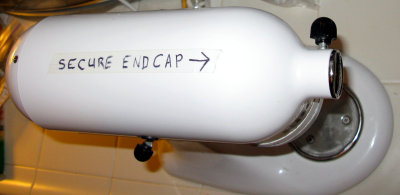Yesterday’s contributions were great, but none of them (including my own) exactly matched my criterion of choosing a subject that’s already almost perfect. Today we return to form with:
- A nitpicky complaint about the climax of an almost-perfect film in Recoil at Maul of America.
and my own suggestions for erasing the flaws in another almost-perfect film.
One of the ways in which I know L.A. Confidential is almost a perfect film is that, while I’ve seen a lot (a lot) of movies, and many of those movies have been about Hollywood, and some of those have been about Hollywood in the 1950’s, still when I think about Hollywood in the 1950’s it’s L.A. Confidential‘s Hollywood that comes immediately to mind. The script is meaty and intelligent, almost epic; the performances are nuanced and three-dimensional; and the overall realization is immersive.
And yet…
There are two key moments in the film where the script goes clunk. (Spoilers follow.) The first is the scene between Jack Vincennes (Kevin Spacey) and Edmund Exley (Guy Pearce). Exley, the straightest straight-arrow in a police department full of crooks, thugs, and sell-outs, is on the outs with everyone, but he needs the help of Jack, the biggest sell-out of them all. Jack’s in the middle of his own dark night of the soul when Exley makes his unwelcome intrusion. All of a sudden, Exley launches into a soliloquy about Rollo Tomasi, the name he made up for the unknown thief who shot and killed his cop father and got away clean. Apparently this is meant to be a rare moment of soul-baring for Exley, and it’s meant to be just what Jack needs to hear in his crisis of conscience. But as played, it’s so abrupt that it’s just not believable. Why would Exley reveal this bit of secret history to Jack, whom he barely knows or likes? It’s not that he understands the effect it will have on him. And why does Jack, who’s merely annoyed at Exley’s presence, become immediately hooked by the story?
(Also, what the hell kind of name is Rollo Tomasi for the young Exley to have made up? Of course it has to be distinctive-sounding so that we’ll recognize it when it comes up again at a crucial plot point later in the film.)
Just a few extra lines of dialog would suffice to fix this. Here’s the relevant part of the script with changebars to show my additions.
JACK
Transfer me, suspend me. Just
leave me alone.
EXLEY
You make a mistake?
JACK
Yeah. My whole life.
Jack stands, heads out. Exley follows; he needs help.
EXLEY
Listen, I think I made a mistake,
too.
JACK
I ain't a priest, Lieutenant. I
can't hear your confession.
EXLEY
Do you make the three Negroes for
the Nite Owl killings?
JACK
What?
EXLEY
It's a simple question.
JACK
You should be the last person who
wants to dig any deeper into the
Nite Owl, Lieutenant.
Exley watches as Jack continues down a hall. Then:
EXLEY
I don't try to bury my mistakes,
Vincennes.
Exley's lashing out, but he's hit a mark. Jack
stops.
JACK
(to himself)
Like catshit.
Exley's surprised at Jack's reaction. He makes
a snap decision to press his advantage.
EXLEY
Rollo Tomasi.
Jack stops, looks back at him.
JACK
Is there more to that, or do I
have to guess?
EXLEY
Rollo was a purse snatcher. My
father ran into him off duty. He
shot my father six times and got
away clean. No one even knew who
he was. I made the name up to
give him some personality.
JACK
So what's the point?
EXLEY
Rollo's the reason I became a cop.
I wanted to catch the guys who
thought they could get away with
it. It was supposed to be about
truth and justice and Rollo. But
somewhere along the way I forgot
all that... How about you, Jack?
Why'd you become a cop?
Jack looks like he might cry, but smiles instead.
JACK
I don't remember...
The second false moment comes a few scenes later, when Edmund Exley pays a visit to Lynn Bracken (Kim Basinger), a high-priced hooker whose employer is connected somehow to the film’s various seamy dealings. Exley knows that his thuggish fellow officer, Bud White, is in love with her.
It’s Exley’s first meeting with Bracken and it’s all business. And as I wrote above, Exley is an extremely straight arrow — even more so at this late point in the movie, when he’s resolved to correct his earlier mistake (alluded to above) rather than enjoy the glory he’d earned by making it.
Yet within just a few lines of dialogue, Exley brazenly grabs and kisses her, and a moment later they’re rolling around on the floor knocking over the furniture — all so the corrupt police captain, the evil mastermind of the movie, can get Exley’s moment of weakness on film from behind a two-way mirror, so he can show it to Bud White, whom he knows will become murderously jealous and take care of Exley for him.
It seems as though we’re supposed to believe that Exley is a bundle of repressed sexual energy that finally can’t be contained in the presence of the smoldering Bracken. But we’ve seen nothing to suggest that of Exley, and while Bracken indulges in some suggestive banter with him, it’s nothing that would make a dam burst. Besides, Exley fears White, knowing that White already hates him for other reasons.
No, it’s a case of the scriptwriters being a little too hasty. They needed something to motivate Bud White’s rampage a few scenes later, and they leaped to the most obvious choice without remaining true to their characters.
How much harder would it have been to stage it like this? The captain knows that Exley is going to see Bracken, and he knows that Bracken’s boss, Pierce Patchett, specializes in making people look like other people. The captain arranges for White to see Exley arriving at Bracken’s house, and then later shows him photos of what appears to be Exley in various compromising positions with her but is in fact one of Patchett’s ringers. Presto: instant murderous rampage, and Exley is still Exley.


